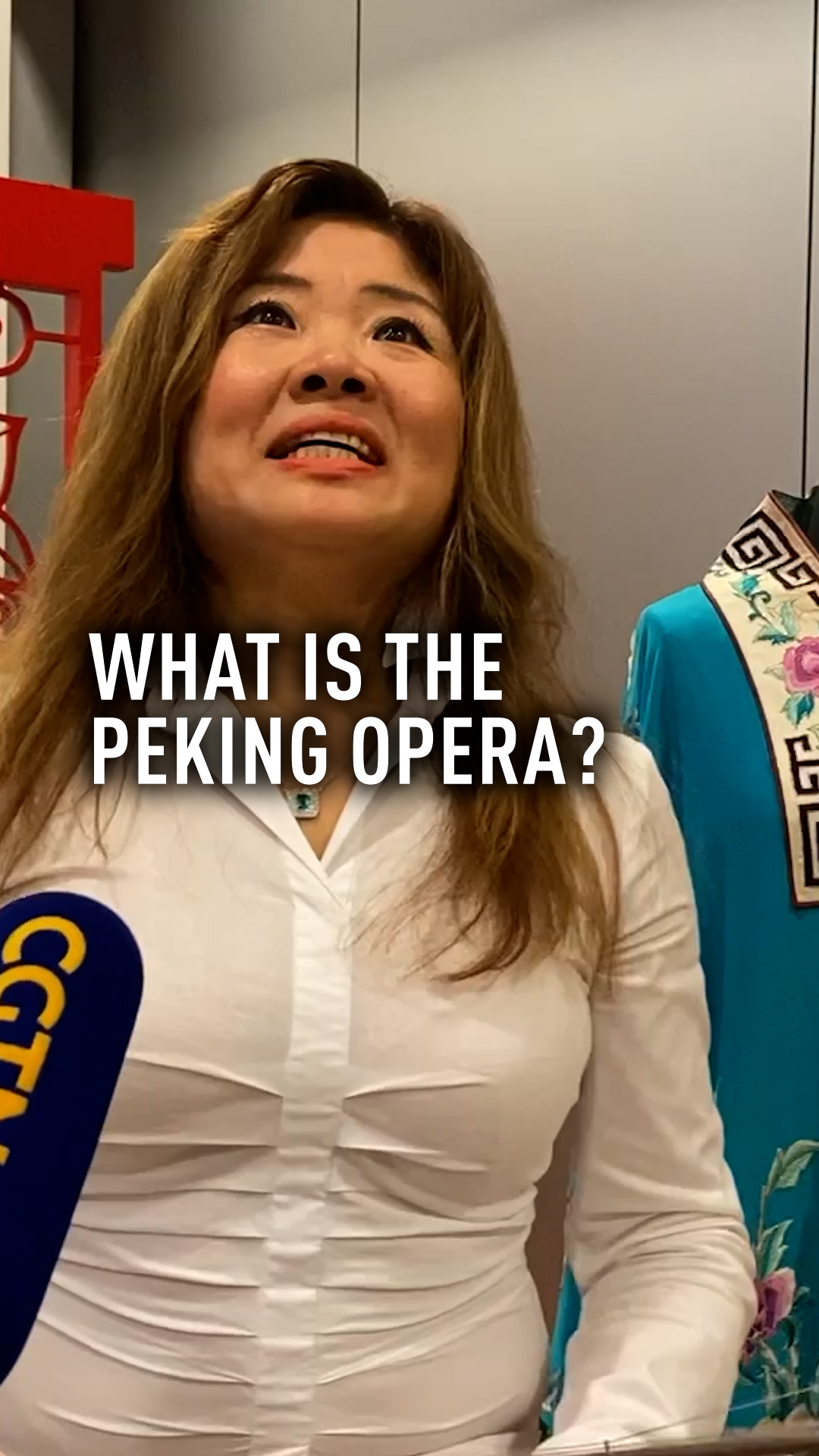01:03

Berlin hosted the strains of over 200 years of Chinese musical heritage as part of the German capital's Mid-Autumn Festival celebrations.
Among the traditional moon cakes, guests were given an introduction to the Peking Opera by musician Deng Xiaomei. Deng graduated from the Peking Opera Academy in Beijing and has lived in Germany for over 30 years.
Opening the event, director of the China Culture Center in Berlin Sun Qinhang emphasized the importance of Peking Opera to Chinese culture.
He said: "Peking Opera is China's intangible cultural heritage and, along with over 300 other local opera forms, the most widespread and influential form of Chinese opera. In 2010, Peking Opera was added to UNESCO's List of Intangible Cultural Heritage of Humanity."
Deng Xiaomei then gave the guests a beginner's guide to Peking Opera, going through the standard characters, the colorful masks and costumes that make this particular art form unique. The stories blend traditional Chinese folklore with tales from history in song, speech, movement, dance and even combat that weave a heady blend.
Deng explained to CGTN that for the first-timer, it might be best to sit back and let it wash over you.
"Any art form that has existed for so many years and is still getting attention has great value," she said. "For those who have never seen Peking Opera before, I would suggest not focusing on the sound at first but seeing the performance as a whole, including postures, outfits, make-up, and expressions, in a big picture, then you can start.
"If you only focus on the sound, it is more difficult to get into it since the singing is unique. The performance as a whole is more attractive and easier for beginners to get into a deeper level."
Deng Xiaomei came equipped with a traditional tool of the Peking Opera, a small bowed instrument similar in tone to a violin, called a jinghu. These are central to the accompaniment of Peking Opera.

Deng Xiaomei with the traditional jinghu. /CGTN Europe
Deng Xiaomei with the traditional jinghu. /CGTN Europe
The particular jinghu that she brought belonged to her father and was made in the 1930s. She treated the audience to a rendition of a piece from the opera called Farewell My Concubine and then explained to CGTN what makes a good jinghu.
"The sound has to be pure. Any new jinghu does not sound good at first. The two of you have to establish a bond first. I have had this one for so many years and we are inseparable. So it makes the exact sound I want," said Deng.
"It also has emotions for me. That's why the longer you own an instrument, the better it sounds. Of course, the construction itself matters; anyway, this one is the best for me."
Peking Opera also has a place as a folk tradition in some Chinese families, with performances of traditional songs at gatherings. Two audience members treated those gathered to a superb rendition of a piece from the Peking Opera, The Drunken Concubine, receiving rapturous applause for their impromptu effort.
Thoughts of family were front and center as this event took place on the Mid-Autumn Festival. Deng Xiaomei told CGTN what the holiday means to her and how she continues to mark it while she's here in Germany.
"When I was in China before, Mid-Autumn Festival was a really important festival for us. All family members are united at Spring Festival or Mid-Autumn Festival. We see the moon together and eat mooncakes and dumplings. To us, family is really important.
"Nowadays, communication technology is good, so I call my family to send wishes virtually. After all, to me Mid-Autumn Festival is very important; I must celebrate."
More mooncakes and tea to celebrate the Mid-Autumn Festival wrapped up the evening with perhaps one or two of the intrigued thinking about seeking out some full performances of Peking Opera.